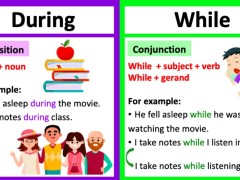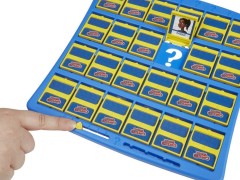during [ˈdjuəriŋ] prep. 在……期间
* * *
A: She always peddles gossip and does nothing during office hours.
B: Maybe she hasn't got anything to do.
A:她上班时间总是说闲话,什么事情也不做。
B:也许她没什么可干的。
* * *
trip [trip] n. 旅行
* * *
A: I'd like to join a bus trip. Could you recommend some places for me?
B: If this is your first time to come here, I'll say that our City Tour should be your first choice.
A:我想要参加巴士旅行。可以推荐一些地方给我吗?
B:如果您是第一次来这儿,那么我认为我们的城市之旅将是您的第一选择。
* * *
travel [ˈtrævəl] v. 旅行
【派】traveling 旅行的 traveler 旅行者
【搭】travel by air 乘飞机旅行
travel agency 旅行社
* * *
A: I want to travel to South Africa. Would you please tell me something about it?
B: Sure. There are many different kinds of wild animals. Most of them only appear in Africa.
A:我想到南非旅行。你能告诉我一些关于那儿的情况吗?
B:当然可以。那儿有很多不同种类的野生动物,其中大部分只有非洲才有。
* * *
offer [ˈɔfə] v. 提供
* * *
A: Would you please give me a valuation form?
B: Yes, we're glad to offer you free valuation forms.
A:你们能给我一个估价单吗?
B:是的,我们很乐意为您提供免费的估价单。
* * *
job [dʒɔb] n. 工作
* * *
A: Are you satisfied with your present job?
B: Yes, I like it very much.
A:你对你现在的工作满意吗?
B:是的,我非常喜欢我现在的工作。
* * *
guess [ɡes] v. 猜
grow [ɡrəu] v. 长,让……生长
beard [biəd] n. (下巴上的)胡子,络腮胡子
Lesson 124 (Who)/(whom), (which) and (that) 关系代词
kitten [ˈkitən] n. 小猫
* * *
A: The white kitten is so cute.
B: But I like the yellow one more.
A:那只白色的小猫真可爱。
B:但我更喜欢那只黄色的。
preposition [时间介词]在…期间;在…期间的某个时候 - Sandstorms are common during the Saudi Arabian winter.
表示时间段:使用“during”来指示某个事件或活动发生的整个时间段。
- She studied hard during the summer vacation.(暑假期间她努力学习。)
- We had a lot of fun during the party.(在聚会期间我们玩得很开心。)
指示具体事件:用于描述某个事件发生期间的状态或情况。
- The power went out during the storm.(台风期间停电了。)
- I met him during my trip to Paris.(我在巴黎旅行期间遇到了他。)
引导名词短语:使用“during”引导一个名词短语来描述特定事件或条件。
- They provided support during the pandemic.(在疫情期间,他们提供了支持。)
- Many accidents occurred during rush hour.(高峰时段发生了许多事故。)
注意事项:与“during”一起使用时,通常后面跟随一个时间段、事件或状态。它可以与任何时间相关的词组合,如季节、年代、午餐时间等。
需要注意的是,根据上下文,“during”也可被用作连词来引导一个时间状语从句。
例如:
- She called me during I was having dinner.(在我吃晚饭的时候,她给我打电话。)
总结起来,“during”是用来表示某个事件发生的整个时间段,可以指示具体的事件、引导名词短语并与时间相关的词搭配使用。
During the day:白天期间
- I like to go for a walk during the day.(我喜欢在白天散步。)
During the night:夜间期间
- The city looks beautiful during the night.(夜晚时分城市很美。)
During the week:一周期间
- I have a lot of meetings during the week.(一周期间我有很多会议。)
During the summer/winter/spring/fall:夏天/冬天/春天/秋天期间
- We usually go on vacation during the summer.(我们通常在夏天度假。)
During the holiday:假期期间
- Many people travel during the holiday season.(假期季节很多人会旅行。)
During the meeting:会议期间
- Please silence your phones during the meeting.(请在会议期间将手机调为静音。)
During the interview:面试期间
- She performed well during the interview.(她在面试期间表现得很好。)
During the show/performance:演出期间
- Please refrain from using flash photography during the show.(在演出期间请勿使用闪光灯拍照。)
During the flight/journey:飞行/旅程期间
- Passengers are required to remain seated during the flight.(乘客在飞行期间需要保持座位。)
During the exam:考试期间
- Talking is not allowed during the exam.(考试期间不允许交谈。)
这些短语展示了“during”与不同场景和时间相关的使用方式。根据具体情境,我们可以用“during”来描述各种不同的事件或时间段。
noun [抽象名词]旅行,旅游;出门,出行;绊倒 - She videotaped the entire trip.
verb [vi. 不及物动词]绊,绊倒;脚步轻快地走(或跑、跳舞) - Someone will trip over that cable.
旅行活动: "trip"通常指的是离开家乡或常住地,暂时前往其他地方的旅行。它可以是短途旅行,也可以是长途旅行。
- We are planning a trip to Europe this summer.(我们计划今年夏天去欧洲旅行。)
- She took a weekend trip to the mountains.(她去山区度过了一个周末。)
出差: 在商务或工作的背景下,“trip”也可以表示出差。
- He went on a business trip to New York for a week.(他出差到纽约一周。)
- Our company often sends employees on trips to attend conferences.(我们公司经常派员工参加会议出差。)
短暂的访问或停留: "trip"还可以表示短暂的访问或停留。
- He made a quick trip to the grocery store.(他快速地去了趟杂货店。)
- I'll just make a short trip to the restroom and be right back.(我只是去一下洗手间,马上回来。)
失误或摔倒:在口语中,"trip"还可以指摔倒或绊倒。
- Be careful not to trip on the stairs.(小心别在楼梯上绊倒。)
- I tripped and dropped my phone.(我绊了一下,手机摔了。)
衍生词汇:
- Tripper:指旅行者或参观者。
- Day trip:指当天的短途旅行。
- Field trip:指学校或组织组织的实地考察活动。
总结来说,"trip"是指旅行或短期出行的名词,可以指短途或长途旅行、商务出差、短暂的访问或停留等。此外,在口语中,它还可以表示摔倒或失误。
1. Take a trip:去旅行
- We're planning to take a trip to the beach next month.(我们打算下个月去海滩旅行。)
2. Business trip:出差
- He went on a business trip to Shanghai for a week.(他去上海出差一周。)
3. Road trip:自驾旅行
- Let's go on a road trip and explore the countryside.(我们一起去自驾游,探索乡村。)
4. Trip planner:旅行规划者
- I hired a trip planner to help me organize my itinerary.(我雇了一个旅行规划者来帮我安排行程。)
5. Trip cancellation:旅行取消
- Unfortunately, due to unforeseen circumstances, we had to deal with a trip cancellation.(不幸的是,由于不可预见的情况,我们不得不面对旅行取消的问题。)
6. Day trip:一日游 (one-day trip,two-day trip)
- We took a day trip to the nearby city to visit the museum.(我们进行了一次一日游,去附近的城市参观博物馆。)
7. Field trip:实地考察
- The students went on a field trip to the zoo to learn about different animals.(学生们进行了一次实地考察,到动物园了解不同的动物。)
8. Trip advisor:旅行顾问
- I always check reviews on Trip Advisor before booking a hotel.(在预订酒店之前,我总是在Trip Advisor上查看评价。)
9. Trip of a lifetime:终生难忘的旅行
- Climbing Mount Everest was a trip of a lifetime for him.(登上珠穆朗玛峰是他一生中的难忘之旅。)
10. Field trip:野外考察
- The students went on a field trip to study the local ecosystem.(学生们进行了一次野外考察,研究当地生态系统。)
verb [vi. 不及物动词](尤指长途)旅行;走动,移动;(以某速度、朝某方向或在某距离内)行进;(光或声音)传播;(食品等)经得起长途运输;周游,走遍;(尤指车辆)快速行进;(消息)流传;盛行各地;(篮球运动中)走步;(目光)扫视,移动;交往;想象来到 - You had better travel to Nova Scotia tomorrow.
noun [抽象名词]旅行;(出国)旅游;(机器部件的)运动范围,运动速度,运动模式 - Information on travel in New Zealand is available at the hotel.
表示离开家或常住地,到其他地方进行旅行或探索。这个词也可以用作名词,表示旅行的活动或行为。下面是对"travel"的详细解释:
旅行活动:作为动词,"travel"指的是离开一个地方,并到另一个地方旅行或探索。这可能涉及到穿越城市、国家、甚至是大陆。
- We love to travel and explore new places.(我们喜欢旅行,探索新的地方。)
- She traveled to Japan last summer.(她去年夏天去了日本。)
旅游观光:作为名词,"travel"可以表示旅行的活动或行为。
- Business travel has increased significantly in recent years.(近年来,商务旅行有了显著增长。)
- He enjoys travel and learning about different cultures.(他喜欢旅行,了解不同的文化。)
旅客或游客: "traveler"(旅行者)是与"travel"相关的名词,用来描述进行旅行的人。
- The airport was crowded with travelers going on summer vacations.(机场挤满了前往夏季度假的旅行者。)
不同方式的旅行:旅行可以采用各种方式进行,如飞行、驾车、骑行、乘坐火车等等。
- We decided to travel by train instead of flying.(我们决定坐火车而不是飞机旅行。)
- They enjoy traveling by bicycle and exploring the countryside.(他们喜欢骑自行车旅行,探索乡村。)
与"travel"相关的词组和表达:
- Travel agency:旅行社
- Travel itinerary:旅行行程
- Travel documents:旅行文件
- Travel restrictions:旅行限制
- Travel insurance:旅行保险
- Travel expenses:旅行费用
总结来说,"travel"是一个动词,表示离开并到其他地方旅行或探索。作为名词,它指的是旅行的活动或行为。旅行可以采用不同的方式进行,还涉及到许多与之相关的词汇和短语。
verb [vt. 及物动词]提供,给予;提议,表示愿意(做某事);出(价),开(价);提出,作出;表示(爱、友谊等);(向上帝或神)奉献(祈祷、赞美),祭献(牺牲); 试图(使用暴力,进行抵抗);<古>发动,挑起(战争);把…摆好(或放到位)(以便检测或评估其外观或状况);<旧>(机会)出现;求婚 - He has offered seats at the conference table to the Russian leader and the president of Kazakhstan.
noun [抽象名词]主动提议,提供; 出价,报价; (商品的)特价,特惠;求婚 - The offer of talks with Moscow marks a significant change from the previous Western position.
- 提供或给予(Verb):
- They offered me a job at their company.(他们给了我一份工作机会。)
- She offered her assistance to help me with the project.(她提供帮助来协助我完成这个项目。)
- 提出(建议、观点等)(Verb):
- He offered a solution to the problem we were facing.(他提出了一个解决我们面临问题的方案。)
- The professor offered some interesting insights during the lecture.(教授在讲座中提出了一些有趣的见解。)
- 提供(商品、服务等)(Verb):
- The store offers a wide range of products for sale.(该店提供各种产品出售。)
- This hotel offers complimentary breakfast to its guests.(这家酒店为客人提供免费早餐。)
- 邀请或表示愿意(Verb):
- They offered us to join them for dinner.(他们邀请我们一起共进晚餐。)
- She offered to lend me her car while mine was in the shop.(她主动提出借给我她的车,因为我的车在修理店里。)
- 提交或表达(Verb):
- He offered his apologies for the mistake he made.(他对自己犯的错误表示了道歉。)
- They offered their condolences to the family.(他们向这个家庭致以慰问。)
- 优惠或折扣(Noun):
- The store has a special offer on shoes this weekend.(这个周末,这家商店在鞋子上有特别优惠。)
- 提供或邀请(Noun):
- I received several job offers after graduation.(毕业后,我收到了几份工作邀请。)
- He declined the offer to join the committee.(他拒绝了加入该委员会的邀请。)
- (祈使句)给予或奉献(例如表示帮助、友善等)(Verb):
- Offer your assistance if you see someone in need.(如果你看到有人需要帮助,主动伸出援手。)
- Always offer a smile to brighten someone's day.(始终微笑着,让某人的日子更美好。)
短语
- Make an offer:提出报价
- We made an offer on the house, but it was rejected.(我们对这所房子提出了一个报价,但被拒绝了。)
- Job offer:工作聘请/职位提供
- She received a job offer from a prestigious company.(她收到了一家知名公司的工作聘请。)
- Accept an offer:接受一个提议/邀请
- They accepted our offer to join them for dinner.(他们接受了我们的邀请一起共进晚餐。)
- Decline/Reject an offer:拒绝一个提议/邀请
- He declined their offer to work for them.(他拒绝了他们的工作邀请。)
- Special offer:特别优惠/特价
- The store has a special offer on electronics this week.(这家商店这周有电子产品的特别优惠。)
- Offer assistance/help:提供帮助
- If you need any help, feel free to ask. I'm here to offer assistance.(如果你需要帮助,随时问我。我会提供帮助的。)
- Offer condolences:表示慰问/哀悼
- Our thoughts and prayers are with you as we offer our deepest condolences.(我们怀着最深的慰问之情,与您同在。)
- Offer a solution:提供解决方案
- After analyzing the problem, he offered a viable solution.(经过分析问题,他提供了一个可行的解决方案。)
- Offer feedback:提供反馈意见
- Please offer your feedback on the new website design.(请提供对新网站设计的反馈意见。)
- Offer support:提供支持
- The organization offers support to victims of domestic violence.(该组织为家暴受害者提供支持。)
noun [抽象名词]工作,职业;零工,任务;职责,责任;<非正式>罪行,(尤指)盗窃;<非正式> 东西,物件;费力的事;幸运的事;刺,捅;<非正式>东西,物件 - Meg loves her job.
verb [vt. 及物动词]刺,捅;(尤指经纪人小规模操作)买卖股票;<非正式>欺骗,出卖;假公济私,营私舞弊 - The government cautioned that pay increases could lead to job losses.
noun [专属名词]【名】 (Job)(英)乔布,(法、葡)若布,(?-1605)约伯<俄>俄罗斯正教会莫斯科牧首,(德、塞、捷、荷、意)约布(人名) - Job is just started a new job.
| painter 油漆工 | doctor 医生 | businesswoman 女商人 | pilot 飞行员 |
| policeman 警察 | lawyer/attorney 律师 | teacher 教师 | farmer 农民 |
| chef 主厨 | plumber 水暖工 | judge 法官 | cash register 收银台 |
| dentist 牙医 | waiter 服务员 | nurse 护士 | carpenter 木匠 |
| shop assistant 售货员 | sales clerk 售货员 | vet/veterinarian 兽医 | interviewer 采访者 |
| inverter 发明家 | cashier 收银员 | actor 演员 | actress 女演员 |
| pianist 钢琴家 | singer 歌手 | artist 艺术家 | reporter 记者 |
| magician 魔术师 | engineer 工程师 | violinist 小提琴手 | agent 代理人 |
| expert 专家 | staff 管理人员 | postman 邮递员 | director 导演 |
| coach 教练 | worker 工人 | fisherman 渔民 | president 主席 |
| manager 经理 | editor 主编 | soldier 士兵;军人 | archaeologist 考古学家 |
| hunter 猎人 | poet 诗人 | performer 表演者 | surgeon 外科医生 |
| optician 验光师 | physician 内科医生 | pharmacist 药剂师 | psychologist 心理学家 |
| midwife 助产士 | paramedic 急救医护人员 | nutritionist 营养师 | professor 教授 |
| lecturer 讲师 | tutor 家教 | librarian 图书管理员 | researcher 研究员 |
| scientist 科学家 | linguist 语言学家 | dancer 舞者 | sculptor 雕塑家 |
| photographer 摄影师 | composer 作曲家 | DJ 音乐主持人 | banker 银行家 |
| film director 电影导演 | screenwriter 编剧 | stuntman 特技演员 | accountant 会计师 |
| entrepreneur 企业家 | stockbroker 股票经纪人 | consultant 顾问 | auditor 审计员 |
| mechanic 机械师 | marketing manager 市场经理 | programmer 程序员 | web designer 网页设计师 |
| data analyst 数据分析师 | electrician 电工 | architect 建筑师 | technician 技术员 |
| driver 司机 | taxi driver 出租车司机 | flight attendant 空乘人员 | captain 船长 |
| conductor 列车员 | logistics manager 物流经理 | detective 侦探 | firefighter 消防员 |
| tailor 裁缝 | security guard 保安 | bodyguard 保镖 | paralegal 律师助理 |
| notary 公证人 | gardener 园丁 | florist 花匠 | forester 护林员 |
| zoologist 动物学家 | marine biologist 海洋生物学家 | hairdresser 理发师 | housekeeper 管家 |
| babysitter 保姆 | tour guide 导游 | astronaut 宇航员 | diplomat 外交官 |
| journalist 记者 | translator 翻译 | interpreter 口译员 | volunteer 志愿者 |
noun [抽象名词]工作,职业;(花费体力或脑力做的)事情;活计;职责,工作内容;(作家、画家、音乐家等的)作品,著作;工作成果;工作所需的材料(或档案等);工作地点;工作时间;作为,行动结果 - People who have work or who are in work have a job, usually one which they are paid to do.
verb [vi. 不及物动词]工作,干活儿;从事体力(或脑力)劳动;从事…工作,在…工作;努力取得,力争;协助,帮助;(机器或设备)运转,运行;开动,操作(机器、装置等);奏效,产生预期的效果;产生…作用 - When you work, you do the things that you are paid or required to do in your job.
I work in NO School. 我在NO学校工作。
work 和 job 都翻译为“工作”,job 为可数名词,一般与“职业、职位”有关,或表示某人的“份内事”; work 作“工作”讲时是不可数名词,常指具体的“劳动、作业”或“(待做的)工作或事务”等,也可能表示“上班”。
- John is looking for a new job.
- I’m looking for work as a driver.
- I am looking for a new job.
- It was his job to repair bicycles.
verb [vi. 不及物动词]猜测,估计;猜中,猜到;认为,以为 - 'Guess what?' she said archly.
noun [抽象名词]猜测,推测 - Would you like to hazard a guess ?
verb [vi. 不及物动词]长大,成长;成活,生长;发展,增加;逐渐变得;产生,形成;栽种,种植;留长,蓄;变长 - We stop growing at maturity.
noun [专属名词]【名】 (Grow)(英)格罗(人名) - Grow have decided to grow my layers out.
- The number of vistors to Frinley has now grown/increased.
- The students in this university has grown in number.
- How tall you’ve become! How you’ve grown!
- She has grown so much she is nearly as tall as I am.
grow = increase(表示数量增长)
- The number is increasing/growing.
noun [专属名词]胡须,络腮胡子;(动物的)颔毛,须;(植物的)芒,髯毛;替身 - He's decided to grow a beard.
verb [vt. 及物动词]对抗(令人畏惧的人),顶撞;抓……的胡须;提供胡须 - a week's growth of beard
noun [专属名词]小猫;(某些其他动物)幼崽(如兔和海狸);一种灰白色舟蛾 - From somewhere, the kitten mewed.
verb [vt. 及物动词](猫、某些其他动物)产仔 - The kitten mewed pitifully.
noun [专属名词]【名】 (Kitten)(法)基滕(人名) - The kitten had settled comfortably in her arms and was purring enthusiastically.









